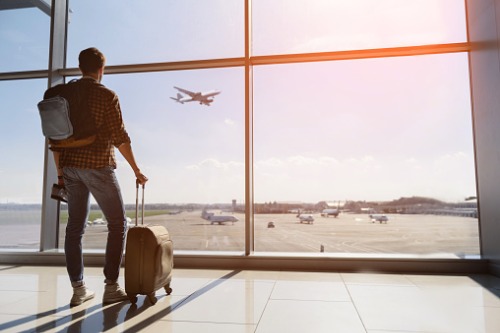

The future of travel is changing, and insurance is keeping its finger on the pulse. According to one futurologist, we can expect remote surgical operations, 3D printing, virtual reality and space travel to become the norm by 2040, and the insurance needs of travellers will also shift as a result.
Futurologist Ray Hammond recently released his report on ‘The Future of Travel Experience’ in collaboration with insurer Allianz Partners, launched as part of his ‘The World in 2040’ futurology series. Hammond says that the future of travel will look very different to the travel of today, with different risks and different solutions presented to travellers, whose needs will also become more complex.
“The face of travel as we know it will change dramatically over the next 20 years,” Hammond said.
“Airline passenger numbers are forecast to double by that time and the travel industry is coming under increasing pressure from travellers for faster and more efficient travel experiences.”
“By 2040, personal software assistants will be sufficiently intelligent to help travellers book their trips online and they will be able to cope with all the complexities of multi-destination travel planning in order to meet the needs of the traveller,” he explained. “Travel will also become more about rejuvenation, adventure, fulfilment and learning new skills rather than just ticking off places to see from a list.”
David Wallace, chief sales officer at Allianz Partners, noted that travel insurance is a key part of the insurer’s global strategy, and that collaborating on this report was a vital way of keeping a finger on the pulse of the travel market, anticipating customer needs and incorporating that into its future strategy.
“Knowing where we’re going is important for us to ensure that we’re supporting our customers as they continue to travel into the future,” Wallace told Insurance Business.
“One of the biggest changes in travel insurance is the continued development of the internet,” he commented.
“It’s very easy for us all to dream from the comfort of our couches, to do research for trips online and to get feedback from other travellers through rating sites, etc. That’s a huge change from having a potentially intrepid and unknown journey to having a reasonable amount of certainty around what your journey might look like before you’ve even boarded the plane.
“Research suggests that that’s going to go to a whole new level with the likes of virtual reality, which would mean that individuals, insurers, brokers and travel agents will be able to have a really good understanding as to what the experience will look like.”
Wallace noted that when it comes to risk, modern travellers tend to know a lot more about the countries they’re travelling to. Global media outlets share things pretty quickly – things like fires, erupting volcanoes locally and overseas, etc. – and travellers tend to be much better informed around the kinds of risks they’re taking. For insurers, advancing technology means they can offer faster, on-the-spot solutions for problems which would otherwise have been a lengthy process.
“If you think about something like lost luggage, rather than having to deal with replacing items, the potential for the likes of 3D printing and on-the-spot replacement is significant,” Wallace explained.
“The speed of travel is also a factor – in the unfortunate case of a medical emergency, we’ll be able to get clients to the bedside of a loved one much faster, or bring people home. Instant translation will also have a good impact on someone who is alone in a foreign hospital. Hearing someone effectively speak your native tongue will provide a lot of comfort.”
Overall, Wallace says the report will be a great value add for Allianz Partners and the businesses it works with.
“It will help them understand where travel might be going,” he said.
“We’ve also talked about what kind of service we might provide alongside our insurance products – the translation service, for example, is something we’ll need to invest in and provide to our customers. We may have local suppliers who can provide the item replacement service, rather than giving the client an allowance to go and do that themselves. There are a whole raft of changes that we will consider to help better support our customers.
“Rather than insurance being a monetary claim at the end of the trip, we’re moving towards ensuring that they can have that support throughout the duration of their journey. We can ensure they have suitable facilities to re-book transport or accommodation, replace lost items, etc. and ensure that the experience they’ve booked is what they get.”
